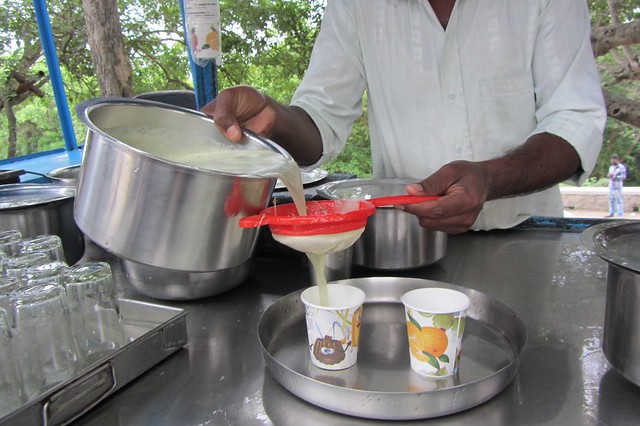Egyptian Sugar Cane Drink Recipe | Fresh Sugarcane Juice (Aseer Asab)
What to Make with Fresh Sugar Cane — Egyptian Sugarcane Drink (Aseer Asab)

Sugarcane is cultivated for its natural sweet juice. In Egypt, it’s the foundation of a beloved street drink enjoyed fresh year-round.
Egyptian Sugarcane Drink Recipe (Aseer Asab)

African Recipes by The African Gourmet: Egyptian sugarcane drink, or Aseer Asab, is made by pressing fresh sugarcane stalks, straining the juice, and serving it chilled. It’s naturally sweet, refreshing, and rich in minerals.
Prep time: 5 minutes
Cook time: 5 minutes
Total time: 10 minutes
Ingredients
- 1 cup fresh sugarcane juice
- ¼ teaspoon fresh grated lemon rind
Directions
Add all ingredients into a large jar or pitcher, mix well, and serve cold over ice.

About Sugarcane in Egypt

Upper Egypt’s economy is heavily dependent on sugarcane production. The crop thrives along the fertile banks of the Nile River and is planted in both spring and autumn. Spring planting occurs in February and March, while autumn planting extends from September through October.
Sugarcane takes about 11 to 12 months to mature. Despite government efforts to encourage sugar beet cultivation for water conservation, sugarcane remains a major cash crop due to favorable pricing and established processing industries.
Egypt has 14 sugar processors — seven handling sugarcane, six processing sugar beet, and one managing both. Most are state-run under the Ministry of Supply and Industrial Trade’s Holding Company for Food Industries.
What Egyptians Call It: Names & Regional Variations

In Egypt, fresh sugarcane juice is most commonly called عصير قصب (ʿaṣīr qaṣab), often shortened to “Asab” or “Aseer Asab”, literally meaning “juice of cane.” It’s one of the most popular street beverages in the country, sold in almost every neighborhood.
In Upper Egypt (southern Egypt), where most cane is grown, locals often refer to the drink simply as qasab and vendors shout “asab asli!” — “original cane juice!” — to attract customers. The drink is celebrated as a symbol of Egyptian warmth, hospitality, and everyday life.
When ordering in Cairo, say: ʿaṣīr qaṣab min faḍlak (عصير قصب من فضلك) — “Sugarcane juice, please.” This phrase is understood across Egypt, from Alexandria to Aswan.
Asab is not just a drink — it’s part of Egyptian identity, connecting the farmers of Upper Egypt with the juice vendors of Cairo and the Nile Valley’s sweet abundance.
More African Drink Recipes
Explore more refreshing African beverages:



